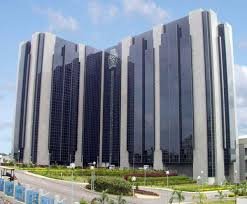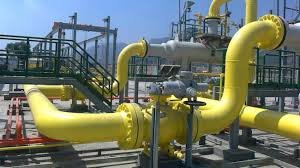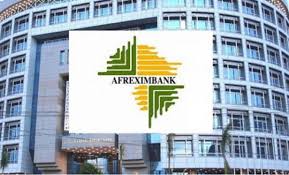Dollarisation is the wide adoption, by the citizens of a country, of the United States Dollar as a means of payment and exchange instead of using the local currency. The worrisome aspect of dollarisation happens when a large segment of the country’s population prefer to store assets in dominant foreign currency rather than their currency. Dollarisation is a manifestation of faithlessness in the stability of a local currency. It demonstrates lack of trust in the capacity of the government to preserve the value of a currency. Dollarisation is also known as currency substitution.
Dollarisation can be caused by a bout of hyperinflation; for instance Zimbabwe is currently experiencing the predicament of hyperinflation. Preference for the US Dollar could also be the result of falling value of the domestic currency relative to the foreign currency. On the whole, people prefer to hold their assets in a foreign currency that is relatively stable. When an economy is dollarised, it loses the control over its monetary policy.
Incidentally and to a greater extent, dollarisation can also be fuelled by government’s fiscal and monetary operations. When a government decides to spend money it does not have or earn, it can resort to printing the local currency. This is especially the case when the government finds it tough to borrow from the international funds market and when its tax revenue is close to non-existence. This could lead to the unsavoury phenomenon of galloping or runaway inflation.
Dollarisation is obvious in an economy with low productive capacity and high dependence on imports even for most basic aspects of their production processes. Such an economy exports less value added products. It becomes a serious challenge when a country fixes the local price of a product or service that has high foreign input, but is priced in local currency.
Dollarisation is equally symptomatic of the cat and mouse game between the government and its citizens. Government wants its citizens to hold more of local currency but the citizens are aware the government certain actions of government could lead to reduction of the value of money, especially through the unrestrained and continued printing of currency. Worse still, it is fact that the government could feel compelled to fix the exchange rate. As such, citizens are likely to ignore the official rate and move their transactions to what is known as black market.
Ironically, many citizens have more faith in the black market operations than the official market. Another dimension of the dollarisation phenomenon is that the activities of corrupt public officials trying to hide their illicit assets can fuel dollarisation. It is the public servants and politicians that first take off from the country at the slightest hint of instability. They are the ones that convert their local currency to a foreign currency. They actually fly to safety first from the local economy.
Dollarisation can be addressed in the short term if government reduces the scale of fiscal operations especially by halting the unhelpful approach of spending funds it has not earned. In the medium to long term, it must produce more at home. The government must put its productive assets to good use. To address the situation, the economy may have to cope with high interest rates in the short term. The government will also need outside help in the form of multilateral agencies like concessionary loans and grants. If the funds realised from these reforms are channelled to key public services like basic education and primary healthcare, citizens will definitely applaud the efforts, and make the required sacrifices. Nonetheless, the fiscal and monetary policy authorities may have to take the more drastic approach of re-denominating the local currency to blunt the allure of the Dollar.
Is Nigeria economy being dollarised? That is yet to be the case for now. Major transactions are still done in Naira and Nigerians still have huge Naira assets. The relevant sections of the Central Bank of Nigeria Act, 2007 stipulate that the unit of currency shall be the Naira which shall be divided into one hundred kobo and in addition, the Naira currency notes and coins issued by the CBN shall be the legal tender in Nigeria. For some time, the CBN under the leadership of Mr. Godwin Emefiele has taken cognisance of the threats posed by unbridled dollarisation of the economy. On many occasions, the apex bank had to explore strategies to mitigate the threat of the Naira getting overawed by the United States Dollar. On many occasions, the CBN has made known its discomfort about currency substitution. It consequently advised all deposit money banks operating in Nigeria to desist from collecting foreign currencies for making payment of domestic transactions on behalf of their customers and the use of their customers’ domiciliary accounts for making payments for visible and invisible transactions. Again, in August 2015, the apex bank ordered the Deposit Money Banks (DMBs) to stop accepting cash deposits in foreign currency. Recently, the CBN declared that only foreign deposits made through electronic transfer into domiciliary accounts can be transferred electronically. In other words, dollar deposits made through transfer cannot be withdrawn as cash over the counter. Whether the DMBs have been implementing the directive or not, is a different ball game altogether.
Although the threat of dollarisation may be waved off by policy makers in the immediate, the reality is that the Nigerian economy tends to display some signs of currency substitution anytime the international price of oil crashes. The disruptive toll, and uncertainty precipitated by the COVID-19 are creating several scenarios for the CBN to grapple with. This threat of dollarisation may have to be factored into the monetary response especially as slowing global economy reduces the demand for oil. In the past, the CBN has demonstrated an iron-clad resolve to intervene in defense of the Naira. How well it responds to the current challenges posed by COVID-19 disruptions will be determined by several factors. These include the extent to which oil prices rise or fall, the inflation rate and the stability or volatility of the exchange rate.
Shola Ogunniyi, a Lagos-based Risk Advisor, is The Explainer Economy Analyst.






















